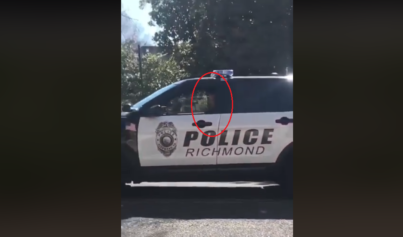Black men being freed for wrongful convictions is nothing new. But these exonerations often expose massive corruption in the American criminal justice system. A closer examination of these cases often reveals police falsifying records and coercing false testimony, and prosecutors concealing evidence that could have freed people.
There is also a racial aspect to wrongful convictions. According to data provided by the Innocence Project, an organization that uses DNA evidence to exonerate inmates, more than half of the people they have freed were Black. The Innocence Project has freed 336 inmates since 1989; 206 were Black.
A Guardian story said that 149 people, a record number, were exonerated last year, an average of three a week.
“It used to be a huge, ‘Oh my God’ story every time a murder exoneration happened, but in the last few years the increase has been remarkable, something like one a week,” said Michigan Law professor Samuel Gross, author of the National Registry of Exonerations’ 2015 report.
The Guardian said that misconduct by prosecutors and police was common. The report found official misconduct in 75 percent of homicide exonerations and in 40 percent of all exonerations.
A good example of how officials break the law is found in the case of Debra Milke, an Arizona woman sentenced to death for the murder of her 4-year-old son. One of the detectives in the case failed to record her interrogation, even though he was ordered to do so by a court. He later claimed that Milke offered him sex and confessed to the murder, which she denied. Since there was no recording of the interrogation, there was no way for her to prove her innocence.
The prosecutor also hid information from the jury that showed the same detective had perjured himself and violated the constitution in eight other cases. Milke’s attorneys used this information to overturn her conviction.
Gross told The Guardian this kind of misconduct probably happens a lot more often than anyone wants to admit.
“Misconduct by its nature is hidden,” Gross said. “We’re always going to be underreporting it.”
The report also found that a Texas county had a particular problem with wrongful convictions. According to The Guardian, 90 percent of drug exonerations were found in Harris County, Texas.
A local law enforcement official recently admitted the county was incarcerating too many people.
“We use the jail as a housing project for people who don’t need to be there,” said Harris County Sheriff Ron Hickman in an interview with ABC 13.
Apart from ruining the lives of the men and women who are wrongfully jailed for years, official misconduct ends up costing the taxpayer money. Exonerees have to be compensated for their lost time. The Innocence Project recommends that states pay wrongfully incarcerated people $50,000 per year of wrongful imprisonment and $100,000 per year on death row. However, compensation varies from state to state, and actually collecting the money is another problem. An Innocence Project study found 40 percent of exonerees hadn’t received any form of assistance.
Anthony Ray Hinton spent 30 years on death row in Alabama, before being exonerated in 2015. However, he is still waiting for the state to compensate him for his wrongful conviction.
“The state of Alabama has not apologized let alone offered some money,” Hinton said in a Salon interview.



